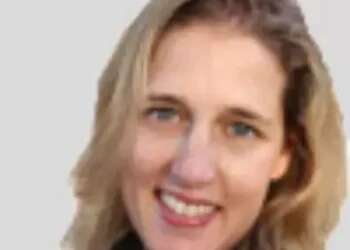Last week's flood disaster, which claimed the life of a Nahariya resident, not only exposed the infrastructure problems and faulty planning and construction in Israel, but also the reality of actual daily life between Jews and Arabs in the Galilee.
The Arab "tractorists" – the heavy machinery operators who live near Nahariya – jumped on their vehicles, of their own personal volition, and rushed to help the residents of Nahariya. No one asked them to do so, nor were they summoned by the emergency services at the scene. They simply stepped forward to help friends in need, and this show of solidarity helped save lives, rescue residents trapped in the flood and open roads.
Follow Israel Hayom on Facebook and Twitter
For all the residents of the Galilee, Jews and Arabs alike, there is nothing strange about an Arab rescuing a Jew or vice versa. There are many Arab communities around Nahariya whose residents interact with the city on a daily basis; making a living, using its services or spending leisure time. For the generation that was born and raised around the time of the state's establishment, Nahariya was always a source of livelihood. For the second and third generations, Nahariya was the city closest to their village, a place for employment, consumerism and a good time – and for a considerable number of Arabs, a place to invest in real estate.
The heavy machinery operators quickly rose to the occasion due to an instinctual sense of local solidarity, but also because of their personal relationships with many of the people who live there and the nearby moshavim and kibbutzim. Despite the divisions that politicians with narrow interests constantly try exacerbating, the sense of mutual responsibility and care among the Galilee's Jews and Arabs is strong and palpable. Arab and Jews are intertwined in all aspects of life. Look, for example, at the hospital in Nahariya, the Galilee Medical Center. Jews are treated by Arab medical staff – and vice versa – and the hospital itself is managed by Dr. Masad Barhoum, an Arab.
For many years Nahariya was governed by right-wing politicians, mainly from the Likud and national-religious parties, but unlike some of their more senior fellow party members on the national level, they never spoke disparagingly about the Arab public and never depicted it as a threat. Just the opposite, they cultivated excellent ties with the Arab residents of the Galilee.
The Galilee region and all it encompasses can provide an important lesson to the country's leaders and lawmakers. It's a lesson in co-existence, tolerance and mutual aid. He who once warned against the "droves of Arabs" heading to the voting stations arrived in Nahariya this week and saw with his very eyes the good and beautiful side of the country's Arab citizens, who arrived in droves to help their Jewish neighbors out of a place of sincere concern and real fear for their lives. They certainly didn't stop to ponder whether the people they were helping were Jews or Arabs.
There's no doubt that there are also problems and frictions rooted in ideology and politics, not to mention historical baggage. But the humanity of people shines through in the difficult moments. There are social problems in the Galilee and security threats, and there are disadvantaged populations, of both Jews and Arabs. Despite everything, the residents of the area are committed to co-existence. In contrast to the picture one might imagine from the polarizing and unhelpful political discourse, the images emanating from Nahariya last week are a much more accurate reflection of reality.


